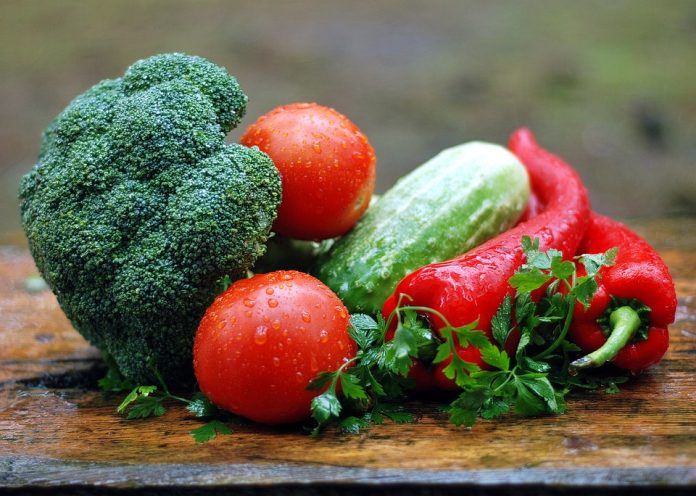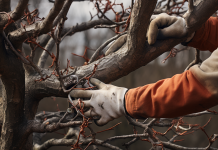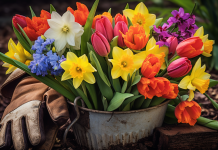There is something truly magical about growing your own food. The satisfaction of sowing a tiny seed and watching it sprout into a thriving plant is unmatched. However, not all of us possess a green thumb, and our gardening attempts often end in disappointment. In this article we are Unlocking the Secrets of Seasoned Gardeners. Successful gardeners have honed their skills over the years and achieve bountiful harvests. So, let's discover some of their tips and tricks.
Soil is the Foundation
Expert gardeners understand that healthy soil is the key to successful gardening. Before planting, make sure your soil is well-drained and rich in organic matter. Adding compost or aged manure to your soil will provide essential nutrients and improve its structure. Regularly testing the pH level of your soil will help you determine if any amendments are needed to create an optimal environment for your plants.
Timing is Everything
Knowing when to plant is crucial. Expert gardeners keep a close eye on their local climate and follow the planting schedules specific to their region. They understand the importance of planting seeds or seedlings at the right time to ensure they have enough time to grow and mature before adverse weather conditions set in.
Companion Planting
Expert gardeners utilize the concept of companion planting to maximize their harvest. Certain plants benefit from being grown together, while others can hinder each other's growth. For example, planting marigolds alongside tomatoes can help repel pests, while planting beans near corn can provide natural support for the corn stalks.
Watering Wisely
Watering is a critical aspect of gardening, and expert gardeners know how to do it right. They water deeply and infrequently, allowing the plant roots to grow deeper and become more resilient. Watering in the early morning or late evening helps reduce evaporation and gives plants enough time to dry off before the cooler nighttime temperatures.
Mulching Magic
Applying a layer of organic mulch around your plants can work wonders. Expert gardeners use mulch to conserve moisture, suppress weeds, and regulate soil temperature. Organic materials like straw, wood chips, or leaves can be used as mulch, providing additional nutrients to the soil as they break down.
Feeding the Plants
Expert gardeners understand the importance of feeding their plants throughout the growing season. They use organic fertilizers or compost to provide a steady supply of nutrients. Regularly monitoring the health of their plants allows them to identify any deficiencies and take appropriate action promptly.
Pest Control
Dealing with pests is an inevitable part of gardening, but expert gardeners have a few tricks up their sleeves. They practice integrated pest management, which involves using a combination of cultural, mechanical, and biological controls to minimize chemical interventions. Techniques like handpicking pests, attracting beneficial insects, and using natural pest repellents are commonly employed. For example, marigolds attract ladybirds and they like aphids.
Timing
Starting seeds early using a heat mat or an electric propagator offers gardeners a head start in the growing season. These devices ensure that seeds receive consistent and adequate warmth, crucial for germination.
This is particularly important when sowing seeds for plants like marigold since the objective is to prevent aphids from taking over.
They foster a controlled environment, encouraging faster sprout emergence and robust seedling growth. This approach maximizes the growing period, allowing plants more time to mature and flourish.
Additionally, it helps in the cultivation of plants that require a longer growing season to yield results. By optimizing temperature, these tools enhance overall seed germination success, leading to healthy, well-established plants ready for transplanting when warmer weather arrives.
Patience
Gardening could be said to be an exercise in restraint and patience, perhaps this may be why it is described as zen like.
| Name | Botanical Name | Seed to Harvest | Good Tip | Interesting Fact |
| Carrots | Daucus carota | 2-4 months | Keep soil moist and weed-free to promote growth. | Carrots can be harvested young for a sweeter, tender crop. |
| Brussels Sprouts | Brassica oleracea var. gemmifera | 4-6 months | Harvest from the bottom up as the sprouts mature. | The plant can continue producing sprouts after the initial harvest. |
| Parsnips | Pastinaca sativa | 4-6 months | Allow a frost to hit parsnips before harvesting to enhance their sweetness. | Parsnips have been cultivated since Roman times and were used as a sweetener before the arrival of cane sugar. |
| Leeks | Allium ampeloprasum var. porrum | 6-8 months | Blanch leeks by mounding soil around them as they grow. | Leeks are a national emblem of Wales. |
| Cauliflower | Brassica oleracea var. botrytis | 4-5 months | Tie leaves over the cauliflower head to prevent it from yellowing. | Cauliflowers can also be grown in colors like purple and orange. |
| Onions | Allium cepa | 5-8 months | Cure onions in a warm, dry, and well-ventilated area for storage. | Onions are one of the oldest known vegetables, dating back to 5000 BC. |
| Potatoes | Solanum tuberosum | 4-5 months | Hill soil around the plants as they grow to protect the tubers. | Potatoes were the first vegetable to be grown in space. |
| Turnips | Brassica rapa subsp. rapa | 2-3 months | Harvest when they are no larger than 2-3 inches in diameter for best taste. | Turnips are a historically important root vegetable, used to survive during winter months. |
| Swedes (Rutabaga) | Brassica napus | 3-4 months | Swedes are frost-resistant and can be left in the ground until needed. | Swedes are sometimes confused with turnips but are larger and part of the cabbage family. |
| Scallions (Spring Onions) | Allium fistulosum | 1-2 months | Use a nitrogen-rich fertilizer to promote growth. | Scallions can be regrown from scraps by placing the white roots in water. |
| Sweetcorn | Zea mays var. saccharata | 3-4 months | Plant in blocks rather than rows for pollination. | A single ear of sweetcorn can have up to 400 kernels arranged in rows. |
| Kale | Brassica oleracea var. sabellica | 2-3 months | Harvest leaves from the bottom up to allow the plant to keep producing. | Kale is one of the most nutrient-dense foods on the planet. |
| Florence Fennel | Foeniculum vulgare var. azoricum | 3-4 months | Plant in a sunny location and water regularly to prevent bolting. | Florence fennel is sometimes referred to as “sweet fennel” due to its subtly sweet flavor. |
Continuous Learning
Perhaps the most interesting secrets of expert gardeners is their willingness to learn and adapt. They constantly seek new knowledge, experiment with different techniques, and learn from their successes and failures. They stay up to date with the latest gardening trends and are always open to trying new plants or varieties.
There is a saying that if you put 3 gardeners in a room you will get 5 different opinions. 🙂
Unlocking the secrets of expert gardeners can transform your gardening experience from one of frustration to one of abundance. By focusing on soil health, timing, companion planting, proper watering, mulching, feeding, pest control, and continuous learning, you too can achieve a bountiful harvest.
Please see our supporting article:
Gardening by the Fireplace: Expert Tips for Vibrant Spring Gardens
For Ireland you may wish to visit some of these sites:
https://www.youtube.com/@REDGardens/featured
“Bruce Darrell manages all of the gardens and related research projects, as well as scripting, filming, illustrating, and editing the videos on this channel. Located in the Cloughjordan Ecovillage, Tipperary. This R&D project consists of 6 family scale gardens each one 100m2 (1000sqf) and following a different methodology, or approach, to growing vegetables.”
https://giy.ie/
“We are a proud non-profit social enterprise working in Ireland, UK and USA from our base in Waterford, with reach globally through our partnerships, media and advocacy work.”
https://www.youtube.com/c/MossyBottom/videos
“Cottage restoration, self-sufficiency and sustainable living on a smallholding in the wild west of Ireland!”
For England you may wish to visit some of these sites:
https://nodighome.com/
Stephanie is actually in Wales.
“Stephanie Hafferty is an award winning garden writer, organic gardener, edible garden designer, food writer and educator, with over 30 years practical experience of growing her own food year round.”
https://huwsgarden.com/en-gb
Huw is actually in Wales.
“At age 12, Huw was inspired to create a YouTube channel to document what he was doing in the garden and had a goal of getting more people to experience the joys of homegrown produce.”
https://www.charlesdowding.co.uk/
“I’m from a farming family, and it’s been a journey of decades to find new ways of growing the soil more naturally. I feel fortunate to have lived well and learnt a lot. I want to share that with you and others.”



